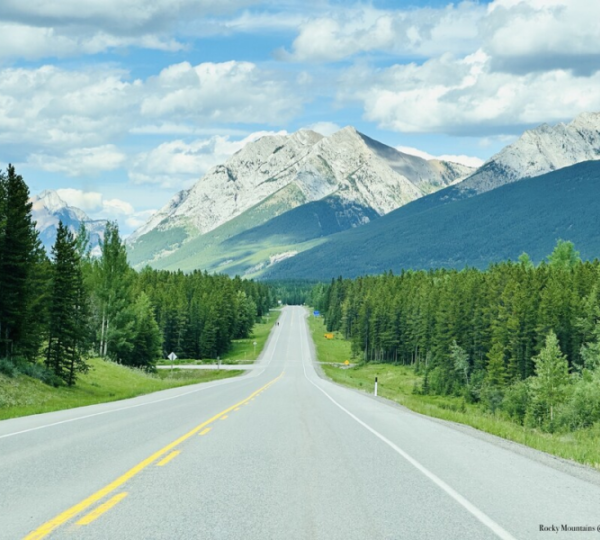Introduction
These two are some of the most commonly consumed drinks by the people in the society across the globe. Depending on the day, whether it’s first thing in the morning or a quiet hour in the middle of the afternoon, these drinks can help us recharge. Did you ever think about what your coffee cup or tea mug can do to the world and the people who cultivate it?
Normal coffee and tea cultivation and manufacturing processes have multiple impacts to the environment and society. Organic commodities: coffee, chocolate, tobacco, simple sodas, fruit juices and many more-have been produced through deforestation of the natural vegetation and the use of dangerous chemicals such as Spraying Pesticides, women and children are paid prejudiced wages and endured exploitative working conditions. The good news is that the world is leaning more and more toward sustainable coffee and tea – a method of consuming our favorite beverages responsibly. And the even better news? In other words, one does not have to pay the earth for the sustainable solution.
But this guide will focus on the problem area to reveal the details, show how to make a correct choice, and tell about cheap and easy-wallet-friendly sustainable coffee and tea. Alright, let’s just cut to the chase and start learning Effective Drinking.

What Makes Coffee and Tea Unsustainable?
But let me briefly discuss the issues that are connected with the ordinary coffee and tea production before moving to the world of sustainable production. These effects can be well classified under environmental and social effects.
Environmental Impact
- Deforestation and Habitat Loss: Commercial coffee and tea farming entails occurrence of deforestation to accommodate the crops. This results to habitat degradation, Species loss and soil erosion.
- Pesticide and Fertilizer Use: Modern agricultural combines the use of synthetic chemicals such as pesticides and fertilizers that pollute water sources and are destructive to wildlife, and deplete the quality of the soil.
- Water Consumption and Pollution: Coffee and tea are water intensive crops, their production negatively impacts the available water resources in the region. In addition, there is a risk that wastewater from processing plants contaminates rivers and streams.
- Carbon Emissions from Transportation: Transportation to ensure coffee and tea arrives at consumers, remains a major source of emissions since these crops move from farms to the consumers.
Social Impact
- Unfair Wages and Working Conditions: Coffee and tea growers: many of them are guaranteed extremely low wages and are obliged to work in substandard conditions; many of them are in developing countries. This can lead and prolong poverty and inequality in the society.
- Child Labor: However, child labor is still observed in some of the coffee and tea bearing lands, which deny children education opportunity.
- Lack of Access to Education and Healthcare: Being isolated from the mainstream markets, farming communities’ access to education health and other basic needs is also limited.
But let us accept that it is evident that coffee and tea which we take are detrimental to our health. Of course, knowing these issues helps make conscious decisions to build a better and fairer system.
What is Sustainable Coffee and Tea?
As you may know the downsides of conventional production have been already illustrated in this article, now here is what coffee and tea sustainability means. Not just hype; lean manufacturing means manufacturing in a way that enhances the quality of life of the people involved and the impact on the earth.
Defining Sustainability
Sustainability is often described as having three pillars:
- Environmental: Conservation of resources, prevention of pollution and management of a variety of species.
- Social: Innocent workers deserving their rights of fair wage and excellence and conditions, friendly development of communities and people, and valuation and observance of human rights.
- Economic: The development of a successful and sustainable business model for the actors involved starting with the farmers themselves and ending with the consumers.
Sustainable coffee and tea production seeks to achieve these three pillars as part of its goal. It’s about a process through which quality drinks are made, within environmentally sustainable methods, which fairly reward farmers and their families and are still affordable for producers and suppliers.
Certifications and Labels You Should Seek
Perhaps one of the most obvious methods of knowing whether a particular coffee or tea is sustainable or not is through looking at certifications and labels. These third party certifications offer credible evidence of the product compliance to certain sustainability standards. Here are some of the most common ones:
- Fairtrade: The Fairtrade mark guarantees farmers are paid a good price for their products hence they can invest in their farm and community projects. It also bans employment of children and Compulsory labor.
- Organic: Organically certified coffee and tea are planted by using natural pesticides and fertilizers not to compromise the soil and the environment.
- Rainforest Alliance: The Rainforest Alliance Certified seal assures the customer that the food was produced according to extensive criteria for innovation, responsibility, and quality in the fields of environment and climate, working conditions and incomes of farmers, and the efficiency of the companies.
- UTZ Certified: The UTZ certification aims to address on: good agriculture, farmer income, and sustainability.
- Bird Friendly: Known as bird-friendly certification from Smithsonian Migratory Bird Center it means that the coffee farms are suitable for the birds.
However, for a more general perspective, it is also necessary to remember that sustainable products do not have to be certified. Although there are some producers that operate under sustainable production, they do not have the capacity to acquire a sustainable label. For this reason, it is always advisable to take sometime and look for more information on the brands that are out there. orbit their values of sustainability and knowing how to choose sustainable coffee and tea.
With a basic knowledge of what sustainable coffee and tea is, let’s move and learn how to be wary of the next time you hit the grocery store.
Look for Certifications
As highlighted earlier on, certification is a very useful in enabling consumers to make sustainable product choices. As you shop the isle with your coffee and tea products then try to look at the labels mentioned earlier (Fairtrade, Organic, Rainforest Alliance, UTZ Certified, Bird Friendly). These are important as they give consumers confidence that the product being developed corresponds to given environmental, social and economic values.
Consider the Brand’s Values
Other than certifications to ensure that the certification you are holding is recognized in the brands company you are interested in dig deeper and know more about the company. It is similarly possible to hear slogans of companies, which declare their clear procedure in receiving the products, the intent of fair trade and environmental conservation. You are likely to find such information on their websites, packaging or social media pages.
Select either Whole Beans or Loose Leaf
All the time go for a whole bean coffee or loose-leaf tea over the already ground coffee or tea bag. Instant coffee and teas on the other hand, prior to their packaging, undergo more processing and packaging hence are categorized under more waste. Using different aspects of the bean or loose tea instead of Advantage’s pre-packed products allows for less waste and a fresher, tastier product.
Support Local Farmers and Roasters
By consuming locally roasted coffee or tea from farmers, you minimize emission by cutting on transportation costs. Sources that offer local options include farmers markets, and small specialty stores, likewise online stores.
Buy in Bulk
It is always cheaper and even ecological to buy coffee and tea in large quantities. It has the added advantage of minimizing packaging waste costs while usually priced per unit lower than bulk packaging.
By following these tips, you can make a right decision over your choices so that you can help them [coffee and tea growers] sustain their livelihood.

Affordable Sustainable Coffee and Tea Options
There are three main misconceptions that can be pointed out when people talk about sustainable products: It is rather important to mention that some specialty brands may be quite expensive, but, nevertheless, there exist completely reasonable coffee and tea brands that can be considered sustainable. Here are some tips for finding them:
Budget-Friendly Brands
- Coffee:
- Equal Exchange: This is a worker owned and run Company that deals in Fairtrade and organic coffee at affordable prices.
- Cafe Direct: Another one is a great site for Fairtrade and organic coffee with a focus on backing small farmers.
- Suma Wholefoods: Currently, Suma has thousands of organic and Fairtrade coffee products within the categories of whole beans, ground coffee, and instant coffee at a relatively low price than its competitors.
- BLK & Bold: This African-American owned company sells fair trade and organic coffee and makes contributions to people and causes.
- Tea:
- Numi Organic Tea: Numi catalog includes different types of organic and Fairtrade teas: black teas, green teas, herbal teas, and white teas.
- Traditional Medicinals: Specializing in herbal teas, many of the supply for Traditional Medicinals has sourced its ingredients from organic farms.
- Pukka Herbs: Pukka sells different types of herbal teas: organic and produced under the Fairtrade. The main concept is based on Ayurveda.
- Choice Organic Teas: This brand has a pretty good choice of organic and Fairtrade teas, which will not cost you much money.
Shopping Tips
- Look for sales and discounts: Coffee and tea are often on sale in most grocery stores and even online stores usually post their Cocktail dinner promotional prices during this time. Make sure that you wait for sales events for sustainable brands to buy clothes from.
- Buy from online retailers or co-ops: Supermarkets and grocery stores usually have a smaller assortment of environmentally friendly products and the prices might be higher than the prices of similar stores and Internet co-operatives.
- Consider store brands: There are groceries stores that provide their own-label brands of sustainable coffee and tea that are cheaper than those of branded sustainable products.
DIY
- Grow your own herbs for tea: Depending on the place in your premises or your neighborhood where you can devote an area for gardening, or even a few inches of space at your windows, you can always graduate from teabags and start making your tea with home grown herbs. It is time to save your money and drink tasty and healthy tea for a long time.
- Roast your own coffee beans: This does take a little gear and experience, but home roasting your own green coffee beans can be a fun way to get great tasting coffee and be friendly to the environment also.
Some product varieties look or taste much better than others yet cost a lot more; by doing your research you can get awesome coffee and tea that is good for both your health and body and is not steeped in your wallet.
Brewing and Enjoying Sustainable Coffee and Tea
Choosing sustainable coffee and tea is a great first step, but you can also make your entire coffee and tea routine more eco-friendly. Here’s how:
Brewing Methods
It is therefore distinguishable that how you prepare your coffee and tea affects the sustainability of the products. Consider these options:
- French press: This old school technique doesn’t employ the use of paper filters therefore the environment is not polluted.
- Pour-over: Being closely related to a French press, pour-over coffee brewing techniques can involve the use of reusable filters, or none at all.
- Reusable filters: If you use drip coffee makers, use a permanent filter instead of a filter that has to be thrown away after use.
- Avoid single-use pods: Single cup caffeine makers or what we commonly refer to single use coffee pods are environmentally unfriendly as they contribute to the huge amount of waste which can easily end up on the environment. If you use a pod machine, consider reusable pod or opt for a different kind of brewing.
Reducing Waste
Here are some more tips to minimize waste in your coffee and tea routine:
- Compost coffee grounds and tea leaves: Coffee grounds and tea leaves can be used for composting using the nutrients that it brings on your garden.
- Reuse tea bags or loose-leaf tea: The thing about tea bags is that some of them can actually be reused; the bag can be plunged and used again several times. Loose leaf tea can also be used to make a weaker second infusion or incorporated into smoothies or for compost.
- Use reusable mugs and water bottles: Instead of waste related with one use cups, business should use mugs and encourage use of water bottles. Some coffee shops even give a cup full of discounts for using your own cups.
If you adjust your brewing and drinking practices just a little, you can potentially avoid so much waste.
Making a Difference with Your Coffee and Tea Choices
We often underestimate the impact of our daily decisions that’s why it important to understand that it does really make a difference with sustainable coffee and tea. Each cup you buy is a vote for the sort of system you’d like to play for someday never happens in Australia.
The Power of Consumer Choice
When testing sustainable coffee and tea, you tell the firms that you do not want any inconsiderate utilization of the environment and unfair treatment of workers. It is widely argued that sustainable consumption fosters consumption and production of sustainable goods by firms and business organizations. This has an impact for the producer to the consumer through the entire supply chain and ultimately positively impacts the farming, communities, and the environment.
Spread the Word
Another way to make a difference is to become a grower of sustainable coffee and tea, or at least to tell others about the existence of such varieties. People need to share the knowledge with the friends, with the relatives, with the co-workers etc. Environmentalism should be recalled as of this decision and they should be urged to choose ecological goods. It is becoming clearer to companies that the more consumers insist on ethical and sustainable products, the quicker the industry alters.
- A similar survey conducted in 2023 by the National Coffee Association shows that 66% of caffeine consumers are willing to educate themselves on sustainability coffee.
- The global market for sustainable coffee is anticipated to rise from \$25 billion to \$28.3 billion by 2025, confirming that consumers are becoming conscience and making a conscious decision towards making the right choice.
- According to Fairtrade International, 1, 666, 468 farmers or workers in coffee and tea producers receive Fairtrade certification’s is a vote for the kind of system you want to support.
The data below prove that the market for sustainable coffee and tea is rapidly expanding. Potential customers across the country have made a conscious effort to help these popular drinks be less unethical by informing and getting the word out.
Common Questions about Sustainable Coffee and Tea
You might have some lingering questions about making the switch to sustainable coffee and tea. Let’s address some common concerns:
Is sustainable coffee and tea more expensive?
Not necessarily! Even though it may be obvious that some specialty sustainable brands might be a bit expensive, there are actually affordable everyday items. Buy during end-of-month, end-of-season or end-of-year sales, purchase store brands, and get large quantities or join online stores or co-op. Plus, do not forget that the slightly higher prices tend to mean the farmers receive fair wages and the practices used are eco-friendly.
Where are good coffee and tea that are also ethically sourced?
Sustainable coffee and tea are within our grasp. You can find them at:
- Grocery stores: Most of the large supermarkets currently provide a range of eco-friendly products.
- Specialty coffee and tea shops: These shops care about the origin of products, and some of them can give valuable tips.
- Online retailers: Coffee and Tea can be purchased in countless choices and selections online from different countries and regions.
- Farmers markets: Get directly in touch with growers and roasters perhaps at the farmer’s markets in your region.
- Co-ops: Ethical and sustainability dimensions appear more often on the list of goods that co-operative grocery stores offer.
What should I know before I believe a brand is actually sustainable?
Shop for products that have Fairtrade, Organic, or Rainforest Alliance logos painted on them. Visit the brand’s website and check their information regarding sourcing and environmental responsibility. Also, search for clues that they are providing full disclosure of what they are doing for farmers and the environment.
What are the compared medical advantages of the sustainable coffee and tea?
Organic coffee and tea are usually yielded from plants that have not been exposed to toxic pesticides and chemicals thus making you safer. Further, more sustainable agriculture requires scaling up is good for the sustenance of species and ecosystems as a whole, which is good for the health of the planet.
It is thus important to ask oneself on the following question;
How do I make a change to have an environmentally friendly coffee and tea drinking habit?
It is wiser to go for environmentally friendly process for preparing coffee which includes the French press or pour-over with filter that can be washed. Don’t dispose your coffee grounds and tea leaves – recycle them into compost instead. Bring your own mug and or water bottle. Recommended forms are whole beans or loose teas because they are cheaper to buy in large quantities and produce less waste.
When purchasing products, you’ll be able to use the above questions as guides then ensure that your consumption pattern is environmentally friendly to support the coffee and tea industry.

Conclusion
Selecting safe cup of coffee and tea is not a new fashion, but it is the right move towards better practice and more sustainable economy. By being aware of the problems related to traditional production and finding the environmentally friendly solutions, we can all work to improve the position of coffee and tea farmers, their families, friends, and their environment.
Note, that ethical and affordable options are still possible. You have learned to search for certifications, to analyze research brands, to think about brewing methods, and to eliminate waste within your daily lives. Any action counts a lot.
The next time you have your coffee or tea, give some consideration on how the drink reached your cup. Consuming these foods and beverages makes you align yourself with a good cause to fight for fairness, environmental conservation and ensure that future generations will also enjoy these products.
Call to Action
We’d love to hear from you! Please post your comment with your choice of sustainable coffee and tea producers. It is time to establish engaged consumers who wish to contribute something good to the world.
Are there any other questions you may need answers on in regard to sustainable coffee and tea? Please ask, and we will gladly offer the answers. Coined as sip sustainably and embrace the change one cup at a time.




